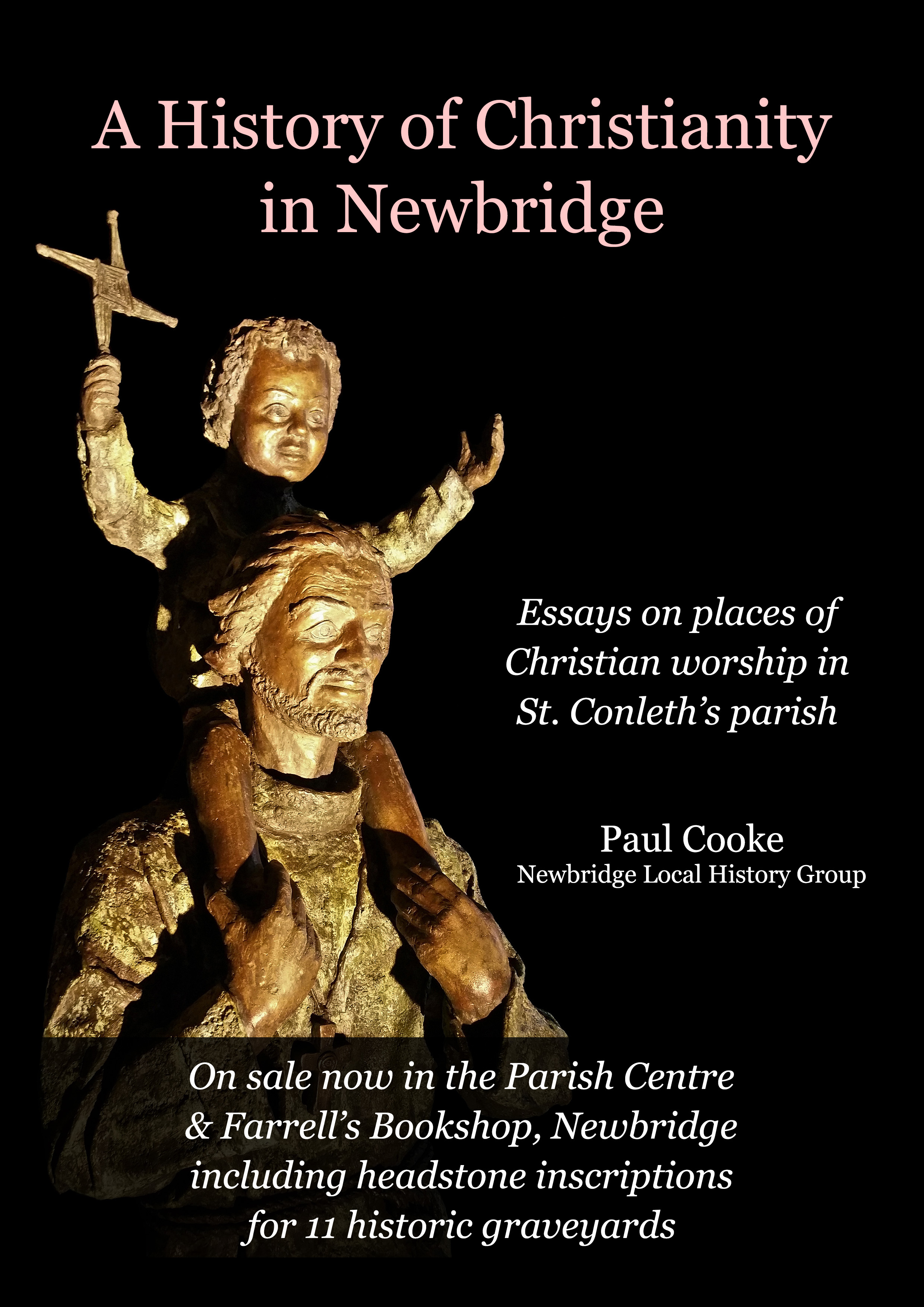Donal Bergin: projectionist in the Odeon Cinema
An interview with retired projectionist Donal Bergin by Liam Geraghty which originally appeared in the Kildare Nationalist newspaper in 2008.
It’s 1946. Alfred Hitchcock’s “Rope” is billed outside the Odeon in Newbridge. Up in the projection room a man named Donal Bergin is loading the film. The lights go down. The film begins and the crowd in the packed picture-house are immersed in a whole different world. Almost every night of the week projectionist Donal Bergin brought magic to a community whose entertainment was limited to cinema and radio. “I needed an easy job and that was the one that was going. I was the rewind boy, then Eddy Grace left and I got the job. I enjoyed it. You met a lot of people,” reminisces Donal sitting on his “throne”.
Manning a projector wasn’t the easiest job as Donal explained. “I had to make sure that everything was all right with the machines. We also had two extractor fans. We’d go from one machine to the other. Most would be about twenty minutes on a spool but you could get shorts like Laurel and Hardy and cartoons and devil-knows what like that. They’d be shorter and you’d be kinda busy going back and forward. But the whole thing is to get your machines right so you wouldn’t have them breaking down in the middle of a picture.”
The Odeon, where Donal worked, stood at the centre of main street Newbridge. Pictures on Tuesdays, Thursdays and Saturdays were half price. I ask what movies were popular with the crowds. “A good western,” replies Donal without hesitation, “not the spaghetti westerns, the black and white ones. Hop Along Cassidy, Roy Rogers, they were all right for Sunday night. They passed out the like of Rio Brava, John Wayne and things like that. They drew the crowds; they were kind of Box Offices. A film would be on two or three nights a week or if it was really good - for the whole week.”
It wasn’t all westerns and cowboys though. “Some of them were great musicals. I liked The Great Waltz. You’d nearly get up and dance with it, you know that way, with the tunes. Surprising, I used to like the music behind the talk.” After several years working in the Odeon, Donal began work in Sands picture house in the Curragh. “I left the Odeon and I went to Sands for a little while. Now Sands was grand. Sands never had a long show.” And a short show was welcomed by Donal as it meant getting out that bit earlier. “It was no job for a young fella because you were held in and you had no social life. You got one night off and you had to fight for that.” Donal then took out an old yellowed newspaper from 1946 and he stared into it. “Twas a different world.” It was packed full of cinema listings. Back then Newbridge had two cinemas - The Odeon and the Palace.
“A man named McGovern owned the Palace. Everyone called it ‘the old cinema’. The Odeon closed and the old cinema is still going,” said Donal chuckling. The Palace is of course now theOscarCinemasrun by Michael Roycroft. “We wouldn’t get an outstanding film, maybe for a year afterwards because they’d be shown inDublinall the time,” Donal explained. “They come in big heavy boxes. I remember going down to collect them at the railway, putting them in the box-office, so the trains could take them down early in the morning to Waterford or someplace like that, dispatch them, write out a consignment note. Sylvester [the owner] would go mostly toDublinto get them. We had to put them on top of the buses in them days and they were heavy - I got strong all right!”
Of all the films I wanted to ask Donal about, the timelessCasablancawas top of my list. “I likedCasablanca, yeah;Casablancawas nice all right, nice story attached to it all right and the tune, ‘play it again Sam’. She was a good actor [Ingrid Bergman]. I think she acted in ‘To Whom the Bells Toll’ too. I liked it when the Three Stooges came up because you didn’t know what was going to happen until they hit the screen. The next thing the Three Stooges came up and you’d hear a cheer and I’d here it inside, they’d be that great. They’d enjoy it and a lot of people only wanted them there all night. And there was fatty and skinny as we used to call them - Laurel and Hardy. The cartoons as well. There was also a terrible lot of travel talk. They used to give out twenty minutes of a travel talk. Say, they might pick outFlorence, they might pick outRome, they’d show you that, they might not be twenty minutes but they’d be a quarter of an hour anyway and then when Technicolor came it was marvellous. And then we’d get trailers of films going to come and they were a bloody nuisance. They’d only be about four or five minutes and that’s where the rewind boy would come in and help you.”
I wondered what had affected cinema throughout the years. “Television came and also during the war, I think the cinemas only operated maybe one or two nights a week. It had a big impact. That’s why the Odeon closed down. And the ol’ Palace went on. And it’s still going on.” So as my chat with Donal came to an end, I wondered did he still pop out to the cinema at all. “Me? No, I’d get irritated. I’d rather be standing up watching a film. I’ve got used to it. I wouldn’t look at the box all day, I shut it off. I’ve seen too many films,” he sighs. “Too many films.”

